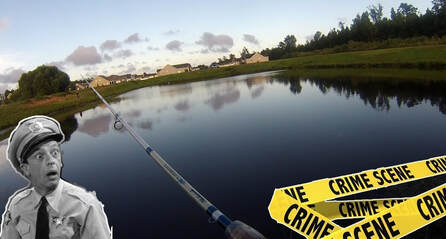|
‘To understand is to perceive patterns.’ (Isaiah Berlin) According to Gestalt psychology, human beings are hard-wired to see things in patterns. Take, for instance, a tree. If I were to invite you to imagine a tree, it’s likely you would imagine the whole tree (well, at least that part of the tree that is visible above ground). I wouldn’t imagine that you’d picture all its constituent elements separately – cells, leaves, twigs, branches etc. Unless you’re dissecting a tree in a botanical lab. It’s essentially the same idea in music. When we listen to a melody, we hear the tune as a whole, not each individual note separately from the others. In fact, if we were to examine each note in turn in isolation, it’s unlikely we’d be able to discern what melody they form part of when clustered together in a specific configuration. Except, perhaps, if we’re learning to play an instrument and focusing intently on one note at a time. Now this intuitive ability can be a real gift when working with teams, groups, organisations – or even making sense of geopolitics. It means learning to step back from the immediate issue or event and, metaphorically, to narrow our eyes into a near-squint to allow a bigger picture, a wider system, a deeper meaning, the wood for the trees, to emerge. Khalil Gibran observed, ‘the mountain is clearer to the climber from the plain.’ I recognised this phenomenon at work this last week when, in the Netherlands for the first time, the more I relaxed and allowed the language to flow over me, the more of it I could understand. When I paid too much attention to individual words, the more I got stuck. There are parallels in Timothy Gallwey’s Inner Game. Beware paralysis of analysis. Take a breath, relax your grip and notice what surfaces into awareness.
10 Comments
‘When trouble arises and things look bad, there is always one individual who perceives a solution and is willing to take command. Very often, that person is crazy.’ (Dave Barry) We can think of leadership as the property of a structure, in which a person designated as a 'leader' holds particular responsibilities and has, at least in principle, the hierarchical authority needed to fulfil them. We can also think of leadership as an intrinsic property of an individual. In this sense, leadership is something that resides within and emanates from a person, something that she or he has and does. This is the realm of competency frameworks and of leader-development initiatives. We can also think of leadership as the property of a group; for instance, a leadership team. In this idea, shared leadership is something exercised by a collective, where a diverse united group is, in potential, more than the sum of its parts. We can also think of leadership as a property of a dynamically-complex eco-system, in which acts of leadership emerge, sometimes unexpectedly and from unexpected places, and exert influence. This is the arena of dispersed and distributed leadership. In organisations, I’m finding the latter perspective especially useful. When working with leadership teams, I invite participants to reflect on the eco-system (cf Gestalt: field) as a whole; for instance: 'Where is leadership-as-influence exercised, inside or outside of the organisation’s boundaries? What are the distinctive roles and responsibilities of different 'leadership' entities within the system? What are the relationships between them? What does each need from the others to be effective?' I notice this invariably opens up far deeper, wider and richer conversations than those that focus on individual leaders alone, or leadership teams in isolation, as if they exist in a cultural-contextual vacuum. Some people find it useful to experiment with mapping their eco-system graphically, recognising that any depiction will reveal and, therefore, create opportunity to open up to healthy exploration and challenge, the way in which they construe their reality and leadership dynamics within it. ‘If I had only one hour to save the world, I would spend fifty-five minutes defining the problem, and only five minutes finding the solution.’ (Albert Einstein) Action Learning is a powerful way to explore an issue, formulate a solution and enable personal agency to act and influence change. It can also be used effectively to enable a group with shared interests or concerns to work on and address an issue together. The first step in this latter approach often entails helping a group to formulate its own question or hypothesis at the outset, a bit like when conducting action research, to establish appropriate focus and boundaries. As a facilitator, we can invite the group to reflect on criteria and wider considerations as it performs this initial task. Here are some examples: a. In relation to this issue, who are they key stakeholders in the system? b. Do we have the right people in the room to address this issue? c. Is it feasible to make useful progress on the issue in the time we have available? d. Are there any ethical, intersectional, reflexive or relational issues we should pay attention to in how we do this? Sometimes, I notice that one or more participants may have an intuitive awareness, a feeling or a hunch that something is, say, anxiety-provoking, challenging or stuck in their system, yet they may struggle to articulate it. In that case, I may invite them to, for instance, draw a picture, tell a story or enact a stance to help surface whatever issues lay beneath for them. Then, we continue the process (above) to reach clarity and agreement, as a group, before we move forward. ‘How can we make the snakes feel safe?’ The power of metaphor. Last week I worked with a group of trauma-informed practice experts. We were thinking about leading and influencing change in dynamically-complex relational systems such as teams and organisations. I shared the image of a snakes-and-ladders game board as a way both of depicting the realities of such change experiences and as a way of managing expectations. Whilst playing with possible meanings for the snakes, the ladders and the game as a whole, we explored how, at times, those people or groups we may view as passive, blocking or undermining vis a vis our own plans may be acting out of anxiety. I was reminded of Richard Young’s two key questions in the organisation development (OD) arena: ‘Where's the power and how is it exercised?’ ‘Where's the anxiety and how does it manifest itself?’ In my experience, we may discover anxiety in all dimensions of human systems. Take, for instance, the leader who is feeling pressured by multiple tasks and demands and worried that the well-meaning initiative you are proposing will be the straw that breaks the camel’s back. Or the team member who is worried that the change you are advocating will increase her responsibilities and leave her feeling inadequate, deskilled or exhausted. I worked with a new senior leader who, in our monthly meetings, would ask me lots of very detailed financial questions. I found it time-consuming and stressful because, although I felt confident in managing my budget, I wasn’t used to reporting at such micro levels. Over time, I began to wonder if I might inadvertently have started to represent a snake in his system…and he in mine. At our next meeting, I asked what he would need from me to give him sufficient trust and confidence in my financial management that I wouldn’t need to report like this in subsequent months. He said: ‘If you were to report using financial language.’ I discovered that, as a Finance Director by background and accountable for my area at Executive level, my limited use of financial language had evoked anxiety in him that I may not have a grip on my team’s finances. I spoke with Finance, expanded my lexicon, reported briefly using his language at the next meeting – and we never returned to micro detail again. The principle here was to approach the person and the issue in an open spirit of curiosity, explore respective needs, identify tangible solutions, and apply them to practice. We both transformed from snakes into ladders and our relationship grew from strength to strength. ‘To demand perfection from someone is to crush them.’ (Joyce Huggett)
I’m a recovering perfectionist. Perhaps I’ll never fully get over it, but the first step is at least to admit it. In the olden days when we used to write things like letters, essays and reports on paper with a typewriter or pen (some of you won’t remember that far back), I can recall clearly a sense of dismay if I made a mistake at the end of a sheet, and ripping it up to start all over again. The thought of a crossed-out word, or Tippex, was far too painful to contemplate. Everything had to be…perfect. This kind of perfectionist streak can be a blessing and a curse. On the one hand, it can drive us to achieve dizzying heights that would otherwise seem impossible. On the other hand, it can leave us permanently frustrated, disappointed or exhausted. We may spend inordinate amounts of time and energy on tasks and relationships, where ‘good enough’ really would have been good and enough. There’s an opportunity cost too: I’m wasting resources that would be better used elsewhere. Yet perhaps the most dangerous dynamic is if and when we begin to impose those same standards, expectations and demands on other people; irrespective of what the situation or relationship itself calls for. This is a risk of ‘red pen leadership’ – where a leader or manager (or, perhaps, parent or partner) takes issue with every slightest detail in another person’s e.g. appearance, performance or behaviour, to the point where the other person is left feeling damaged, diminished or despairing. If you have perfectionist tendencies or are leading-coaching others who do, there are some useful insights from psychology that can help, e.g. psychodynamic: ‘What has happened to you that makes perfection feel so critical?’; Gestalt: ‘What are you not-noticing here and now?’; cognitive: ‘What assumptions are you making about who or what’s most important?’; systemic: ‘What cultural factors are driving your behaviour?’ I’m learning to breathe, pray, relax, be more pragmatic – and forgive. 'Give a man a fish and you feed him for a day. Teach a man to fish and you feed him for life. Right? Wrong. Not if there’s a factory upstream pumping toxic effluent into the river.’ (Bill Crooks) Bill’s jolting critique demonstrates starkly the potential inadequacy of focusing on a person, or an issue, out of context. There is, after all, always a context, a Gestalt ‘Ground’, that bears an influence on a person, team, group or organisation and what she, he or they are capable of achieving. It could be an enabling or disabling influence, a stronger or weaker influence, yet an influence all the same. I worked with an organisation that took contextual dynamics very seriously; e.g. when setting and reviewing goals, ‘What else?’ was a key question. What else would it take to achieve success, over and above the enthusiasm, expertise and hard work of the individual? What people, resources, relationships and other factors would she have to navigate well, and what support would she need? This approach raises some interesting questions. If we take this kind of systemic view, to what extent does it make sense to reward (or reprove) an individual if the wider context plays such a significant influence on what he does, or doesn’t, do or achieve? It is something about how well, or not, he grasps, transcends or overcomes whatever opportunities or challenges the context may create? What do you think? Can I help you develop greater systemic awareness in your work? Get in touch! info@nick-wright.com It’s tempting to think the world has gone crazy. A crisis in one place followed in quick succession by a crisis somewhere else. Yet situations and events that appear completely unrelated can look mysteriously connected once we pause, step back from the dramatic media rhetoric and look more deeply. ‘What is really going on here?’, ‘What is influencing what?’, 'What patterns and links are forming?'
McDermott & O’Connor in ‘The Art of Systems Thinking’ distinguish between: simple complexity (e.g. a car engine that is complicated because it has numerous parts - yet it parts interact predictably and in fixed ways) and dynamic complexity (e.g. human systems such as families, teams, communities, nations etc. where different parties not only interact but change and influence each other). Dynamic complexity at a global level is being accelerated and amplified by technology and social media that enable people to connect, interact and influence each other faster than ever before. As Wheatley explains in ‘Leadership & The New Science’, however, this does not necessarily create ever-increasing chaos. It’s as if even complex human systems find their own equilibrium and flow. So what does this mean for leadership, OD and coaching? Firstly, look beyond the issue itself to inquire into ‘what else’ is creating and sustaining the conditions for it to arise. Secondly, view human systems in terms of relational influence rather than mechanics. Thirdly, be curious and responsive to what and where energy is emerging and shifting. Fourthly, be ready to let go - and dance! |
Nick WrightI'm a psychological coach, trainer and OD consultant. Curious to discover how can I help you? Get in touch! Like what you read? Simply enter your email address below to receive regular blog updates!
|









 RSS Feed
RSS Feed